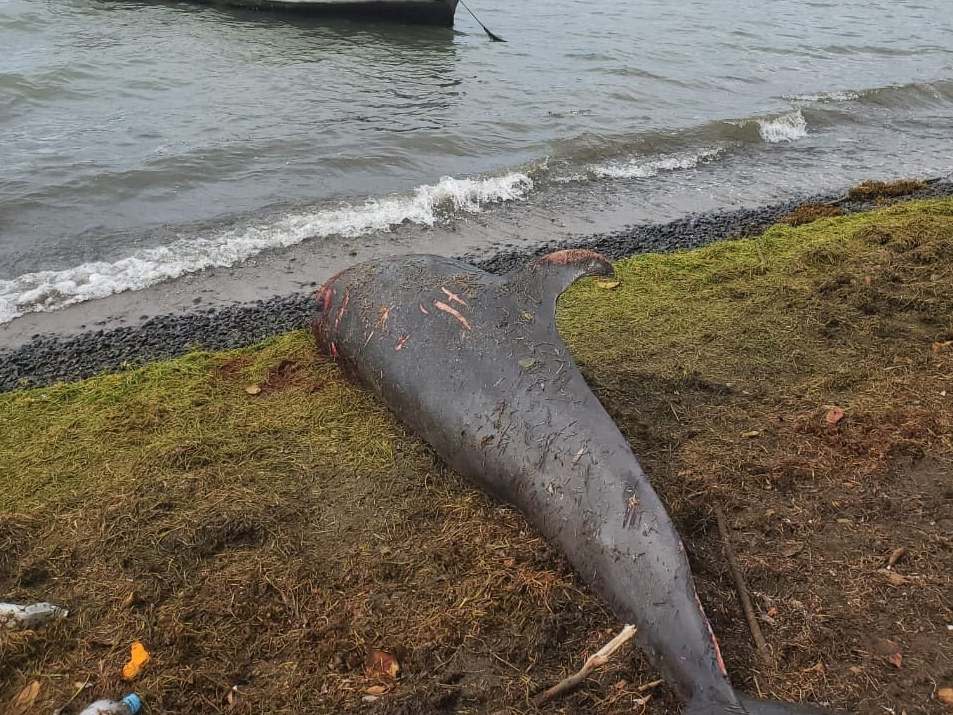‘It’s heartbreaking’: 25 dolphins wash up dead in Mauritius weeks after oil spill

Twenty-five dolphins have been found dead on the shores of Mauritius less than three weeks after a large oil spill caused by the grounding of a cargo ship. More dolphins were found close to the shore, alive but in distress, and were carried into deeper waters by local inhabitants and the authorities.
The stranded electra dolphins, more commonly known as melon-headed whales, were discovered fewer than 10 miles from where the Japanese-owned but Panamanian-flagged bulk carrier MV Wakashio ran aground, spilling an estimated 1,000 tonnes of fuel oil into the lagoon.
Some of the stranded dolphins were bloodied while others had visible injuries around their jaws when they were found by locals in the early hours of Wednesday morning.
Bernard Aliphon, a diving instructor from the region who came across one of the stranded dolphins, said: “I know those dolphins, I swim with dolphins every day. It’s heartbreaking seeing them like this. It’s like deaths in the family.”
Bryan Terasawmy, a 22-year old photographer who found two stranded dolphins on his way to work, added: “It is so sad. I think it’s because of the oil spill. There is oil even on the coastal road. When it’s high tide, the waves deposit oil there.”
Authorities warned more dolphins could yet be stranded but said they could not yet establish a link between the deaths and the oil spill. They pointed out that 35 dolphins were found stranded in that region in 2005.
Harry Khambule, a senior climate and energy campaign manager at Greenpeace, appealed for "a swift, transparent and public autopsy on the bodies collected”.
The stranded dolphins were transported to the Department of Fisheries’ research centre, where preliminary results from from two completed autopsies showed no traces of fuel in the stomachs of the animals.
Remaining autopsies are expected to be completed over the next few days. Fat and skin samples have also been taken for toxicology tests, while other samples will be sent to Reunion island for further analysis.
News of the strandings adds to the feeling of helplessness of the region, locals said.
Many fishermen are struggling because they can no longer fish in the area of the oil spill. Others who run small businesses that cater to tourists, such as small boat operators, have been effectively out of work since Mauritius closed its international borders in March because of Covid-19.
Dr Adam Moolna, an environment and sustainability lecturer at Keele University and a Mauritian, said: “There is a community of 15,000 people who live alongside, and are suffering alongside, the wildlife of this small corner of Mauritius."
Brummell Laurent, a 52-year old boat operator from the coastal village of Mahebourg, said the community is demoralised.
“Everyone is depressed. Yesterday, they cut off my internet because I couldn’t afford to pay the bills any more. We need to start our lives all over again from zero," he said.
Read more
Mauritius conservationists race to save rare species from oil spill
Mauritius seeks compensation for 'national disaster’ oil spill
Mauritius scrambles to save pristine beaches and coral reefs from cata

 Yahoo News
Yahoo News 
